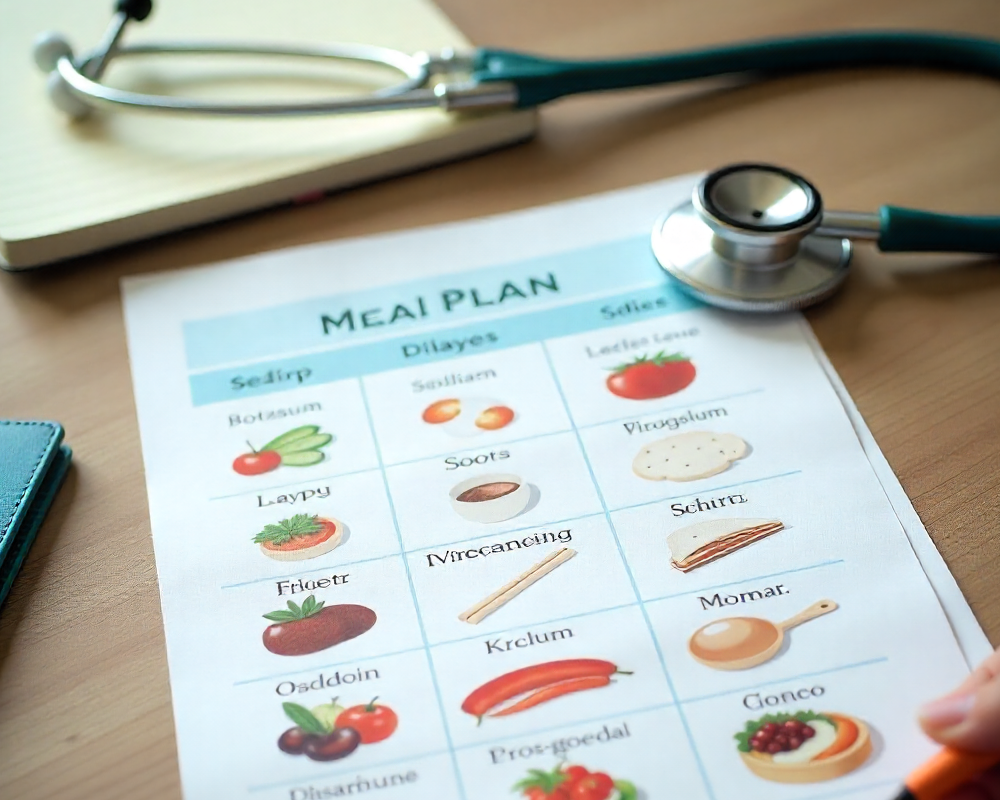When you are undergoing dialysis, your nutritional needs change significantly. A carefully managed dialysis diet is a fundamental component of your treatment plan, working alongside your medical procedures to help you feel your best. Because your kidneys can no longer filter waste products and fluids effectively, your diet must help manage the buildup of these substances between treatments. Understanding what to eat and what to limit is a powerful step in taking control of your health and improving your quality of life while on dialysis.
At Doral Health & Wellness, we are proud of our commitment to providing integrated, interdisciplinary health services in our innovative medical facility. Our expert nephrologists and dietitians offer personalized guidance to help you navigate your dialysis diet with confidence. We invite you to connect with us for comprehensive and supportive kidney care.
Key Principles of a Dialysis Diet
The primary goal of a dialysis diet is to minimize the metabolic load on your body by controlling the intake of certain nutrients and fluids. Working closely with a dietitian and your nephrologist is essential, as your specific dietary needs will depend on your type of dialysis, lab results, and overall health. The best kidney doctor will ensure your diet plan is tailored specifically to you.
Managing Key Nutrients
Three mineals require careful monitoring when you are on dialysis. Your body needs them, but too much can cause serious health problems.
The main nutrients to limit are:
- Phosphorus – Healthy kidneys easily remove excess phosphorus, but in kidney failure, it builds up in the blood. High phosphorus levels can pull calcium from your bones, making them weak and brittle. It can also cause itchy skin and joint pain. Phosphorus is found in many foods, especially dairy products, nuts, beans, and processed foods with phosphate additives.
- Potassium – This mineral is crucial for nerve and muscle function, including your heartbeat. However, high potassium levels (hyperkalemia) can be dangerous and lead to an irregular heartbeat or even a heart attack. Foods high in potassium include bananas, oranges, potatoes, and tomatoes.
- Sodium – While your body needs some sodium, too much can make you thirsty, leading you to drink more fluids than recommended. Excess sodium and fluid can raise your blood pressure and cause swelling (edema), putting a strain on your heart and lungs.
Fluid and Protein Considerations
Fluid and protein management are also central to a successful dialysis diet.
- Fluid Restriction – Because your kidneys are not removing enough water, most dialysis patients must limit their fluid intake. This includes all liquids like water, coffee, and soup, as well as foods that are liquid at room temperature, such as ice cream and gelatin.
- Protein Intake – Dialysis treatments can remove protein from your blood. To replace this lost protein and maintain muscle mass and strength, you will likely need to eat more high-quality protein than you did before starting dialysis.
Building Your Plate: Foods to Eat and Avoid
Navigating food choices can feel overwhelming at first, but with guidance, it becomes much more manageable. A nephrology expert, like a nephrology doctor NY, can connect you with a renal dietitian for a detailed plan.
Foods to Include
Focus on high-quality protein and low-potassium fruits and vegetables.
Recommended food choices:
- High-Quality Protein – Lean meats like chicken and turkey, fish, and eggs are excellent sources. Your dietitian will specify the right portion sizes for your needs.
- Low-Potassium Fruits – Apples, berries (strawberries, blueberries, raspberries), grapes, and pineapple are great options.
- Low-Potassium Vegetables – Cauliflower, onions, bell peppers, and cucumbers are versatile and kidney-friendly. Certain high-potassium vegetables like potatoes can be leached (soaked and boiled) to reduce their potassium content.
- Grains – White bread, white rice, and refined pastas are generally lower in phosphorus and potassium than their whole-grain counterparts.
Foods to Limit or Avoid
Careful limitation of certain foods is critical to prevent complications. Finding the “best nephrologist near me” will ensure you get personalized advice.
Foods to watch out for:
- High-Phosphorus Foods – Dairy products (milk, cheese, yogurt), nuts, seeds, dried beans (like kidney and black beans), and dark-colored sodas. Many processed and packaged foods contain hidden phosphorus additives.
- High-Potassium Foods – Oranges, bananas, potatoes, spinach, avocados, and tomatoes. Salt substitutes are also often very high in potassium.
- High-Sodium Foods – Canned soups, processed meats (bacon, sausage), frozen dinners, and many fast foods. Focus on cooking with herbs and spices instead of salt.
Searching for “nephrology near me” is the first step to getting connected with a local expert who can guide your dietary journey.
Your Partner in Kidney Health
Adhering to a dialysis diet is a critical part of your treatment that empowers you to improve your health and well-being. While it requires significant adjustments, you are not alone. Your healthcare team, including your nephrologist and a renal dietitian, is there to provide the support, education, and guidance you need to succeed. By carefully managing your intake of fluids, protein, and key minerals, you can help minimize complications and feel better between your dialysis sessions.
For expert and compassionate kidney care in the East New York community, trust the specialists at Doral Health & Wellness. Our dedicated team provides cutting-edge dialysis services and comprehensive nutritional counseling to help you manage your health effectively. To schedule a consultation with the best kidney doctor and develop a personalized dietary plan, contact Doral Health & Wellness today at 1-718-365-2555 or visit us at 1797 Pitkin Avenue, Brooklyn, New York 11212. For general information about Doral Health & Wellness services, you can contact or email info@doralhw.org.






